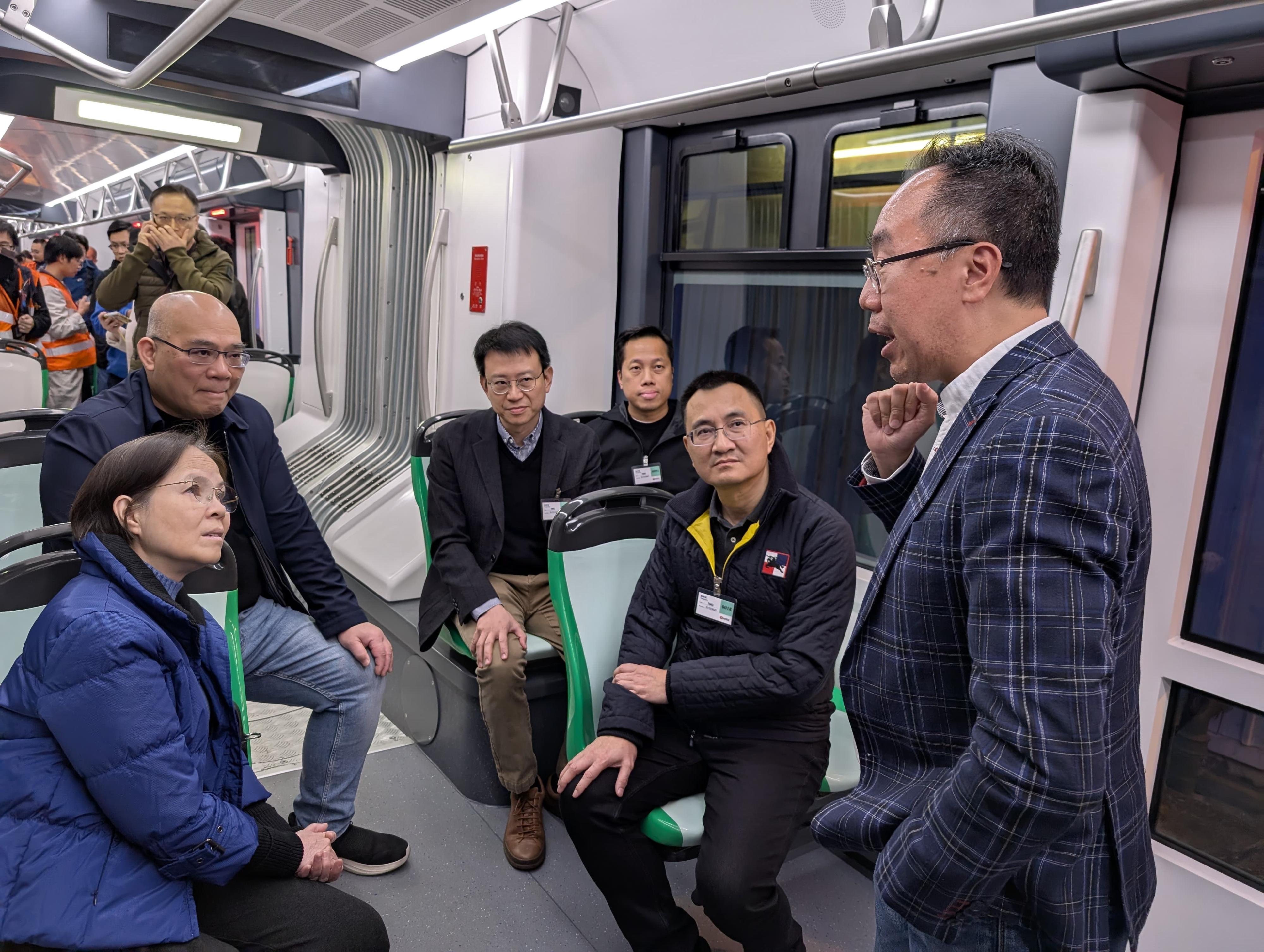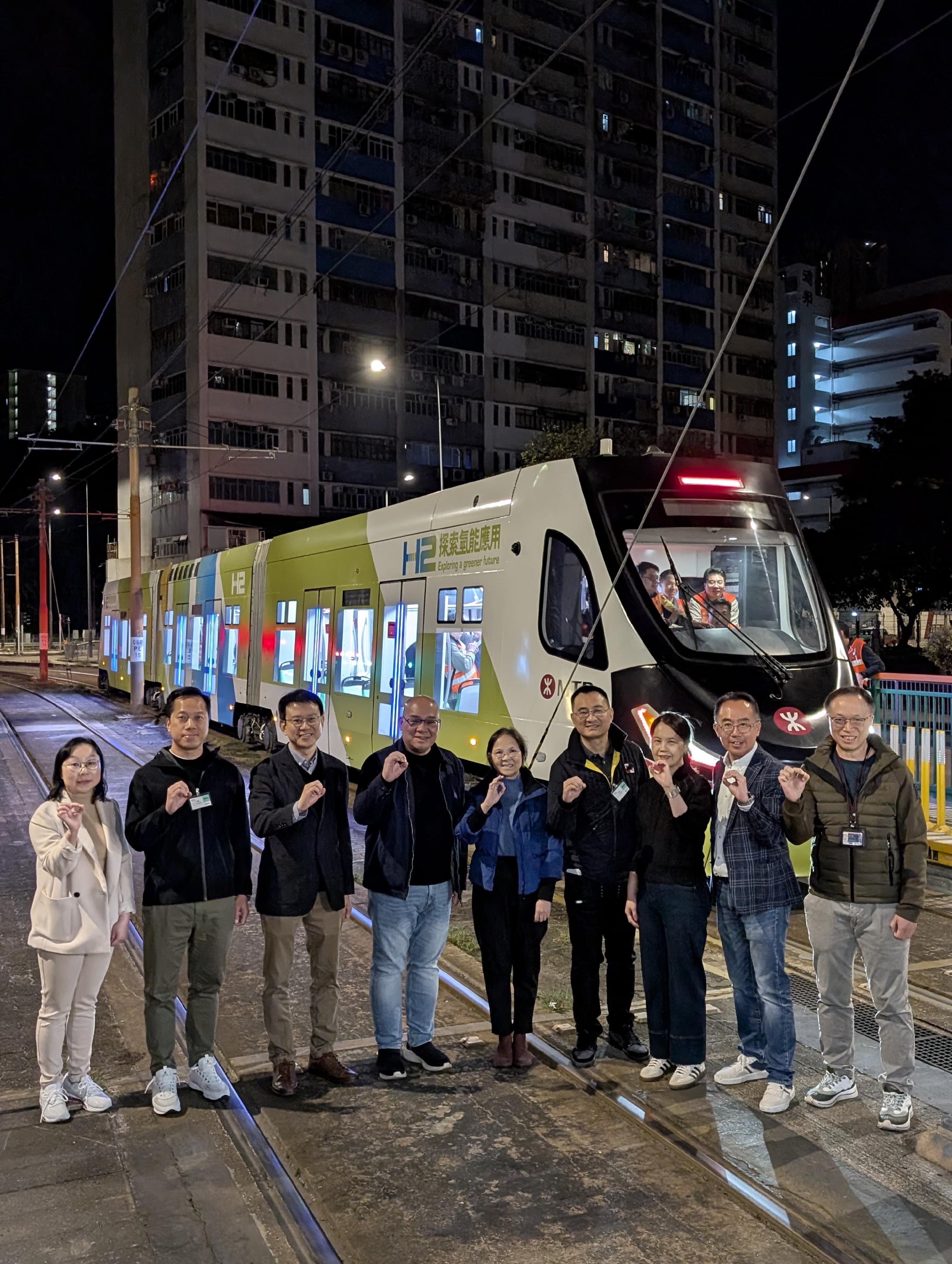A spokesman for the Environment and Ecology Bureau (EEB) said that the Inter-departmental Working Group on Using Hydrogen as Fuel (Working Group) led by the EEB has given agreement-in-principle to four more applications of trial projects on hydrogen fuel technology at its meeting last Friday (November 29).
The relevant projects involve:
(a) an application submitted by Sinopec (Hong Kong) Limited, which involves production of hydrogen with solar energy at the restored Pillar Point Valley Landfill in Tuen Mun;
(b) an application jointly submitted by China State Construction Engineering (Hong Kong) Limited, Hong Kong Nation-Synergy International Hydrogen Power Technology Co., Limited and Sinopec (Hong Kong) Limited to try out a 19-seater hydrogen fuel cell (HFC) minibus and a 55-seater HFC coach for providing shuttle service commuting the construction site for workers, and three HFC forklift trucks to be used at the construction site;
(c) an application jointly submitted by Kingroad Logistics Limited, Allenbus Automotive Technology Co., Limited and Hong Kong Hydrogen Fuel Cell Company Limited to try out a HFC medium goods vehicle for cross-boundary transport; and
(d) an application submitted by Sinopec (Hong Kong) Limited to test out a HFC light goods vehicle for transport application at its oil terminal in Tsing Yi.
The spokesperson for the EEB stated, “The Working Group has promptly initiated the examination process upon receipt of detailed information of the trial projects. Following the applicants’ enhancement on the designs and technical details according to feedback from government departments to ensure that the trial projects can be carried out smoothly and safely, the Working Group has given agreement-in-principle to the four applications at its meeting on November 29.”
To date, the Working Group has given agreement-in-principle in stages to a total of 18 applications of hydrogen energy trial projects. Among them, Citybus Limited’s HFC double-decker bus has already commenced daily passenger service across the territory. Sinopec (Hong Kong) Limited completed the construction of Hong Kong’s first public hydrogen refuelling station at Au Tau, Yuen Long last month. Expected to commence operations in about two months’ time, the station could supply hydrogen to the three HFC street-cleaning vehicles that are about to launch their trial. After the meeting, the Chairperson of the Working Group, the Under Secretary for Environment and Ecology, Miss Diane Wong, along with other members of the Working Group, visited the trial of hydrogen fuelled light rail vehicle currently being conducted by the MTR Corporation Limited (MTR) this morning (December 1). The project involves a hydrogen-powered train being tested on the sections of existing Tuen Mun Light Rail network during nighttime non-service hours and running as a non-revenue train, in order to collect data for assessing the technical feasibility of hydrogen energy as a clean energy option for the MTR network.
The Working Group will continue to make reference to the operational data and experience collected from all local trials, in order to provide advice for the continuous enhancement of the safety and technical guidelines on the local application of hydrogen energy.
The Government announced the Strategy of Hydrogen Development in Hong Kong (the Strategy) in June this year. To facilitate on-going implementation of the Strategy, it is suggested to expand the roles and functions of the Working Group, in order to assist the implementation of the various measures set out in the Strategy more effectively, including (1) continuing to review and approve trial projects; (2) co-ordinating the development and continuous enhancement of the relevant technical standards and guidelines for hydrogen application under different scenarios having regard to the local context; (3) advising on the pathway for wider application and commercialisation of hydrogen energy trial projects; (4) providing support for local infrastructure development and manpower training for hydrogen application; (5) assisting in the promotion of the popularisation of hydrogen application; and (6) regularly reviewing progress of implementing the Strategy. Also, the Labour Department (LD) has agreed to become a new member of the Working Group upon its invitation, with a view to assess trial applications related to hydrogen-powered mobile machinery more effectively.
The Electrical and Mechanical Services Department (EMSD) is now working with the Department of Justice on the amendments to the Gas Safety Ordinance to include safe regulation on hydrogen fuel and it is targeted to introduce a bill into the Legislative Council next year. The EMSD is also actively facilitating training for professionals in hydrogen technology and is currently discussing with the Vocational Training Council and suppliers of hydrogen fuel systems to establish relevant safety training courses for practitioners in the hydrogen fuel trade. With a view to promoting the development of green hydrogen applications in Hong Kong in the longer run, and to support Hong Kong’s development in the field of green energy, the consultant engaged by the EMSD is conducting study for formulating the approach of hydrogen standard certification suitable to Hong Kong.
The spokesman said, “The EMSD reported to the Working Group that the study would be conducted with reference to Mainland and international experiences and the latest developments on hydrogen standard certification, aiming at formulating the approach of hydrogen standard certification suitable to Hong Kong by 2027. In terms of promotion and education, the EMSD actively organises science outreach events and seminars to enhance public awareness and understanding of the development of hydrogen energy.”
The spokesman supplemented, “To promote the green transformation of land transport, ‘The Chief Executive’s 2024 Policy Address’ announced the earmarking of funding under the New Energy Transport Fund to launch the Subsidy Scheme for Trials of HFC Electric Heavy Vehicles. We will announce the details of the acceptance of invitations under this scheme in due course.”
The spokesman further supplemented, “The Government is also committed to promoting hydrogen development through regional collaboration. The Pearl River Delta Air Quality Management and Monitoring Special Panel under the Hong Kong-Guangdong Joint Working Group on Environmental Protection and Combating Climate Change has suggested to cover demonstration projects of cross-boundary delivery vehicles transiting into HFC vehicles in its working plan for 2025. The EMSD has also been maintaining close communication with the State Administration for Market Regulation and the General Administration of Customs of the People’s Republic of China on the technical level. In addition, the EEB will also have further exchanges with the Mainland authorities regarding cross-boundary issues involving the development of hydrogen energy.”
The Working Group is formed by the EEB, the Transport and Logistics Bureau, the Development Bureau, the Security Bureau, the Environmental Protection Department, the EMSD, the Fire Services Department, the Transport Department, the Marine Department, the Planning Department, the Lands Department, the Buildings Department, the Architectural Services Department and the LD.





